- Home
- Troy Denning
The Parched Sea Page 7
The Parched Sea Read online
Page 7
“If your hand is not empty when it comes out,” the youth said, “my knife will search for your heart.”
The sheikh rose and started toward Al’Aif. “I will not allow this!”
Ruha intercepted the old man. “Listen to Al’Aif, Father.”
The sheikh’s eyes seemed to clear. “Ruha?”
“Yes.”
Her father closed his eyes for a long moment. When he opened them, they seemed vacant once again. “What are you doing here, Daughter?” His voice was a bit too calm. “Why aren’t you with your husband?”
“I am a widow,” she replied, glaring at the purple-robed man Kadumi still held at bay.
The sheikh sighed deeply. “I am sorry to hear that, Daughter,” he said. “But your place is still with the Qahtan. They are your tribe now.”
“I am with the Qahtan,” Ruha replied, motioning to Kadumi. “This is my husband’s brother. He and I are all that remain.”
Zarud scowled, but when he tried to speak Al’Aif pressed the knife more tightly against his throat.
“How can this be?” asked Ruha’s father, his brow knotted in confusion.
“The Zhentarim massacred them,” Al’Aif said. “Isn’t that so, Zarud?”
The dark-robed man did not respond, but the question drew the sheikh’s attention back to his guests. “How many times must I command you to release my guests, Al’Aif?” He acted as if he had not even heard the accusation made against the Zhentarim agents.
“A hundred times will not be enough, my sheikh,” the warrior responded. “Not while they are using magic.” He drew Zarud’s head back, then scraped the blade along the captive’s throat as if shaving him. “Tell Sheikh Sabkhat you’ve been using magic,” he said. “Tell him or die.”
It was the pale stranger who Kadumi guarded that answered. “Your man speaks the truth, Sheikh. We meant no harm. I cast a spell so we could speak your language. That was all.” The stranger glanced at Ruha and frowned, then turned his attention back to her father. “Please accept my apologies if we offended you.”
The old sheikh looked from his daughter to Al’Aif to the pale stranger, then dropped his gaze to the ground and shook his head in confusion. He remained that way for several moments, and they all waited for his response in silence.
Finally he turned toward Zarud. “No tribe has abided magic in all the generations since the Scattering,” he said.
“The Scattering?” asked the pale man.
“My father told me that once there were three great tribes of Bedine,” the sheikh said, beginning the explanation with the words traditionally used to denote a myth. “The sheikhs of these Three Ancient Tribes dreamed of ruling all the people, and so they had their sorcerers summon N’asr’s denizens to make war upon each other. The war destroyed the land and gave birth to Anauroch. It took the gods themselves to set the world right again, and some of them died before the carnage could be stopped.”
Al’Aif interrupted and bruskly finished the account. “The surviving gods scattered the Three Tribes to the corners of the world and forbade them to ever use magic again,” he said, glaring at the purple-robed stranger. “That is why you must leave, Zhentarim.”
The pale man ignored Al’Aif and looked to Ruha’s father. “We are outsiders and did not know your customs, Sheikh Sabkhat. Surely we can be forgiven for this small mistake.”
The sheikh nodded at the stranger’s words, then began, “What you say is true. Perhaps we can overlook—”
“Father!” Ruha interrupted, locking gazes with him. “How can you make an exception for them?”
As the widow had hoped, her father found it difficult to reconcile making an exception for his guests when he had not made one for his daughter. He looked away, halfheartedly mumbling, “They don’t know our customs.”
“Were they unaware that it is not customary to attack a tribe with no cause?” Ruha pressed. “Will you ignore the oaths you swore with the Qahtan and make peace with those who slaughtered them?”
The sheikh looked to his daughter in horrified disbelief, then turned to Zarud. “Is this true?”
Zarud looked to the pale man.
“If you lie, my knife will open your stomach,” Kadumi threatened, moving the blade toward the stranger’s solar plexus.
Still speaking in an amiable, melodious voice, the pale Zhentarim said, “Lord Zarud made the same offer to the Qahtan that he presented to you. They refused.”
“And you massacred them,” Ruha finished spitefully.
The man shrugged, and an artificial smile crept across his lips. “You and the boy are alive. That is what’s important, is it not?” He turned to Ruha’s father and inclined his head respectfully. “Lord Zarud has extended the hand of the Zhentarim in friendship. You may ask the Qahtani about the consequences of refusing it.” Even as he uttered the warning, his words remained as sweet as nectar.
The threat seemed to kindle a light in the old sheikh’s eyes, but they grew confused and vacant again almost immediately. He turned toward Zarud, then said, “This is not a decision I can make alone. I will consult with the elders tomorrow, and then we will give you our decision. Until then, you may stay as a guest in my camp.”
Zarud nodded. “I am confident you will make a wise decision.”
Without looking away from Zarud, Ruha’s father pointed at the pale man. “Your servant—if that is what he truly is—must go. He has used magic in my tent, and that I cannot abide.”
Zarud looked panicked. “How will we talk?”
The pale man raised a hand to comfort his fellow. “Whatever the answer may be, I am sure Sheikh Sabkhat will make it known to you.” He gave Ruha a long, thoughtful glance, then continued, “If my presence makes our host uneasy, then it would be better if I left. Perhaps you will walk me to my camel and tell me what I should relay to our masters—provided, of course, that the sheikh can secure our release.”
Ruha’s father scowled at Al’Aif. “The time has come to release our guests, unless you intend to kill them against my wishes.”
The gaunt warrior reluctantly nodded to Kadumi, then they both stepped away from their captives. Neither one of them sheathed their weapons until the two Zhentarim had left the khreima.
Ruha’s father returned to his seat, then held his head in his hands for several minutes. When the sheikh finally looked up, his face was ashen and his brow drooping with fatigue. The light had returned to his eyes, though, and the widow could tell that her father had regained control of his own will.
“Are you well, Sheikh?” asked Al’Aif.
“Who can say? I thought I was well before, but my judgment was apparently clouded,” the old man answered. He turned to his daughter with genuine hurt in his eyes, then said, “Ruha, I cannot tell you how sad it makes me to see you here.”
Ruha understood exactly what her father meant. As a man, he loved his daughter. At the same time, he was the tribe’s sheikh and her presence would open a wide schism in the gathered families. Her return could only force him to make a decision as painful for him as it would be for her.
“Don’t be sad for me, Father,” the widow said. “I only returned to warn you of the danger that destroyed the Qahtan. I have no wish to burden the Mtair Dhafir.”
Kadumi betrayed his bewilderment at this comment by furrowing his brow, but he politely waited for the sheikh to address him and did not say anything.
The sheikh pondered Ruha’s answer for a moment, then wearily nodded his head. “You have always performed your duty well.” He turned to Kadumi and raised an eyebrow.
“This is Kadumi,” Ruha said, reacting to her father’s signal of interest. “He is a son of the same mother as Ajaman.”
The sheikh nodded grimly. “The Mtair Dhafir always have need of another blade. Al’Aif will make you welcome in his tent, I am sure.”
Kadumi’s eyes lit, and he could not restrain a proud smile, for the sheikh was treating him as a full warrior. Nevertheless, the youth glanced toward Ruha. “You
are kind, but in my brother’s absence, I must watch over his wife.”
The young widow and Al’Aif grimaced simultaneously. Reaching for her brother-in-law’s arm, the widow said, “Kadumi, perhaps there is something I should say to you—”
The sheikh waved a weary hand to cut her off. “Say it later,” he ordered. Turning to the boy, he said, “Ruha will be welcome in the khreimas of her father for as long as she cares to stay. Now, you will excuse us. I must hear exactly what happened to the Qahtan.”
Five
Ruha spent the next two hours describing to her father what had happened to the Qahtan. Listening with growing concern, the old sheikh repeatedly interrupted her with questions, especially when she described the white bolt that had killed Ajaman and the lizardlike humanoids that had led the attack. When the widow at last finished the story, her father made her repeat the entire thing to be sure she hadn’t missed anything.
Finally he shook his weary head. “The strangers speak with the honeyed tongues of bees, but it seems their bite carries the venom of a scorpion. I doubt we can trust them to keep their treaty, but I fear what they will do if we do not agree to it. This will be a difficult decision.”
With that, he sent a messenger to summon the elders to council, then instructed his servant to take Ruha to her khreima. The boy led her to a small tent that had been erected a hundred yards outside the camp circle. Had she been a normal guest, one of her father’s wives would have invited the young widow to stay in her tent. Instead, Ruha knew, this khreima had been erected especially for her.
The tent was large enough to hold ten or twelve people. It had been stocked with several carpets, a kuerabiche to use as a pillow, and an empty waterskin. Though exhausted from last night’s long ride and the interrogation her father had given her, Ruha took the waterskin and went toward the spring. If she did not fill it before she went to sleep, she would have nothing to drink when she woke, hot and thirsty, in the afternoon heat.
As the widow approached the gully, she realized that something was wrong. Instead of the lyrical babble of the spring, she heard the raucous cries of alarmed birds. Ruha’s first thought was that the Zhentarim were coming to attack, but she quickly realized that was impossible. She had heard no warning amarat horns, and it was inconceivable that an entire army had sneaked past the Mtair sentries in broad daylight.
Ruha crept along the edge of the ravine toward the alarmed birds. She moved slowly and cautiously, for she had long ago learned the value of prudence in the desert. It took fifteen minutes of crawling on hands and knees, carefully staying hidden behind the thin cover of qassis bushes, to reach the disturbance.
When she finally peered over the edge of the gulch, the widow gasped at what she saw lying ten yards below, in the bottom of the ravine. A dozen larks were perched in the twigs of the ghaf trees lining the small stream, screeching madly at a figure lying face-down in the stream. He wore a sand-colored aba and his keffiyeh was nowhere to be seen. Ruha immediately realized that he was no Bedine, for his head was topped by long golden hair.
The widow watched the motionless man for a moment, wondering how he had managed to sneak past her father’s sentries. Ruha concluded that he must have come during the night. She started to back away, intending to summon her father’s warriors.
The man lifted his head, cocking it as if to listen. It was then that Ruha realized she had seen him before. A black patch covered his left eye, and the pale skin of his face was red and blistered with sunburn. He was the man she had seen in her vision, who had appeared on the wake of the Zhentarim army.
A short, featherless arrow protruded from his right breast, and there was a dark stain below the wound. Ruha recognized the short shaft as being similar to the ones that had been used to slaughter the Qahtan. It appeared that the one-eyed berrani was no friend of the Zhentarim. That made the man her ally, for, as Al’Aif had whispered to her earlier that day, “the enemy of my enemy is my friend.”
As Ruha contemplated what to do next, the stranger astonished her by looking in her direction. Ruha had not made the slightest sound while watching the man, and felt confident that she was well-concealed behind the lip of the gulch and the qassis bush. Yet the wounded man clearly knew she was there. Automatically she lifted a hand to make sure her veil was in place.
The berrani called to her. “Bedine, I have come to warn your people—the Zhentarim are coming.”
Though his words were strained and weak, he spoke in unaccented Bedine. Ruha wondered whether he knew the same magic that Zarud and his purple-robed companion had been using to communicate, or if he had learned the language from some other tribe.
Without replying to the stranger, Ruha went down the slope, then rolled him onto his back. He had cracked, bleeding lips and a face haggard with the effects of dehydration. The wound was more serious than it had appeared from atop the ravine, for the berrani had torn both his aba and his flesh trying to pull the barbed shaft from his shoulder.
“Who are you?” she asked at last, filling her hands with water from the tiny stream.
The wounded man allowed her to pour the water into his mouth, then said, “I’m called Lander.” The effort of talking drained his strength, but he continued to speak. “I’ve come to warn your tribe—”
“The Zhentarim are here. There is no need to warn us.”
Looking alarmed, Lander summoned his strength and gasped, “They have already wiped out one tribe!”
“Save your strength,” the widow said, holding her fingers over the stranger’s mouth. “We know.”
“But you don’t—”
Ruha used her fingers to close his eyes. “I said to save your strength.” With her free hand, she took a pinch of fine sand and sprinkled it over the man’s face. “Sleep,” she whispered, following her order with a spell that guaranteed he would obey.
After filling her waterskin, Ruha rolled Lander onto his side and whispered an incantation. The man’s robe flapped as the breeze grew stronger and slipped beneath his body. Soon he hovered a foot off the ground, his weight buoyed by the wind beneath his back. The widow took the stranger’s arm, then pulled him up the gulch in the general direction of camp. When she judged they were roughly even with her khreima, she left him floating in the bottom of the gulch and climbed to its edge to peer at the camp, a hundred and fifty yards away.
From what she could see, the women were busy with their weaving and the children were either with the camel herds or playing inside the main circle of tents. Neither Zarud nor any of the men were anywhere in sight, and everyone else was studiously ignoring her tent.
Breathing a sigh of relief, Ruha went back to Lander and towed him out of the gulch. The last thing she wanted was to get caught using her magic, and she suspected it would also be better if Zarud remained ignorant of Lander’s presence. Keeping a wary eye cast in the direction of camp, she pulled him to the back side of her tent, raised the camel-hair wall, and pushed him inside. Only then did she cancel the spell and let him drop to the ground.
Ruha entered the tent from the front, then dragged the stranger farther into the tent, where she could attend to his wound. Even in his magically induced sleep, Lander’s face was drawn and contorted with pain. Ruha had the urge to look beneath his eye-patch, but resisted the temptation. If she were the one lying unconscious and wounded, she would not want him to lift her veil, so it only seemed fair to respect his privacy. Instead, she pulled the berrani’s dagger from its sheath. Unlike her own jambiya, it had a straight blade that would be more useful for the tasks at hand.
Ruha cut the dirty robes away from the wound and removed a diamond-shaped amulet of gold from around his neck so she could inspect the wound. The featherless arrow had entered just below the collarbone. The flesh surrounding the black shaft was puffy and red. Lander had tried to work the arrow out by himself, and the edges of the wound were torn and raw. He had enlarged the puncture enough so that Ruha could almost see the head, buried deep within the sinews that held his
shoulder and collarbone together. The flesh surrounding the head oozed pus and deep red blood.
The widow tugged gently on the shaft and saw why the berrani had not been able to extract it. The end of a barb poked its sharp tip through a muscle. Lander did not stir at all, and the young widow was glad his stupor would spare him the pain that would accompany what she had to do next.
Ruha had never before extracted an arrow from a man’s flesh, but she did not feel queasy or hesitant. Like all Bedine, she had learned to clean game and butcher meat at a young age, and human flesh was not so different from that of a hare or a camel. Moreover, during her years with Qoha’dar, she and the old woman had had no one but each other to rely upon in the event of trouble. More than once, Ruha had set a bone or sewn up a gash for her mentor.
Grasping the shaft with her left hand, she used the other to tug gently at the arrow. When the barb appeared beneath a large sinew, she gently pushed the arrow back into the flesh and turned it a few degrees, then pulled up again. This time the tip showed through a mass of mangled red flesh. She guided the tip of the dagger down the arrow shaft until it reached the barb. With a quick flick, she severed the strands of meat holding the arrow in Lander’s shoulder.
Ruha pulled the shaft free, and the berrani gasped in his sleep. She tossed the grisly arrow aside and pressed her palm against Lander’s lips. He immediately returned to his stuporous sleep, and the young widow ripped a piece of cloth off the hem of his aba. She soaked it with water from the skin she had filled at the spring, then wiped the blood and grime out of the wound. The flesh she had cut to extract the dagger was still oozing blood, so she rolled the cloth into a small ball and pressed it into the puncture.
The widow ripped another piece of cloth from Lander’s robe, soaked it, and cleaned the flesh surrounding the wound. Where it was not inflamed and red from the trauma of the injury, the berrani’s skin was as pale and milky as the moon. Had anyone told Ruha that a man could be so white, she would have imagined a grotesque, inhuman disfigurement. On Lander, however, the color seemed a creamy complement to his blue eye and golden hair. The young widow had to restrain herself from laying a hand on his chest to see if his skin felt as soft as it looked.

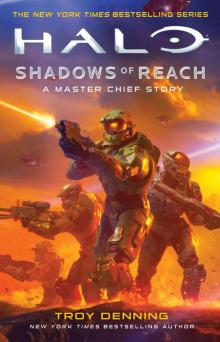 Shadows of Reach: A Master Chief Story
Shadows of Reach: A Master Chief Story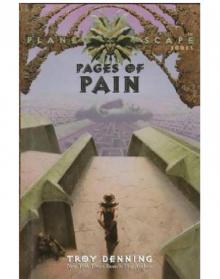 Pages of Pain p-1
Pages of Pain p-1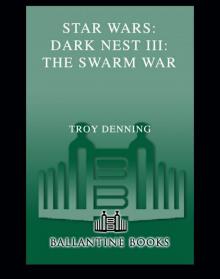 Star Wars 396 - The Dark Nest Trilogy III - The Swarm War
Star Wars 396 - The Dark Nest Trilogy III - The Swarm War Star Wars: Fate of the Jedi: Apocalypse
Star Wars: Fate of the Jedi: Apocalypse A Forest Apart
A Forest Apart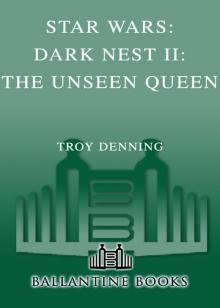 Star Wars: Dark Nest II: The Unseen Queen
Star Wars: Dark Nest II: The Unseen Queen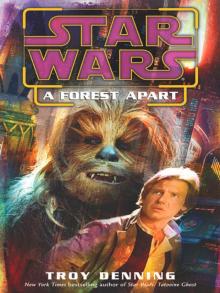 Star Wars: A Forest Apart
Star Wars: A Forest Apart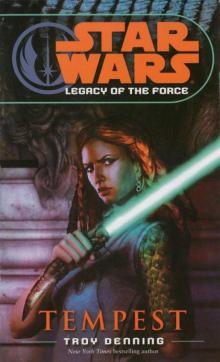 Tempest: Star Wars (Legacy of the Force) (Star Wars: Legacy of the Force)
Tempest: Star Wars (Legacy of the Force) (Star Wars: Legacy of the Force) Star by Star
Star by Star Crucible: Star Wars
Crucible: Star Wars Last Light
Last Light Invincible
Invincible Inferno
Inferno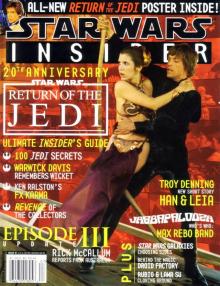 Star Wars - The Trouble With Squibs
Star Wars - The Trouble With Squibs Abyss
Abyss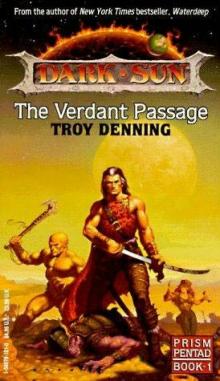 The Verdent Passage
The Verdent Passage Vortex: Star Wars (Fate of the Jedi) (Star Wars: Fate of the Jedi)
Vortex: Star Wars (Fate of the Jedi) (Star Wars: Fate of the Jedi)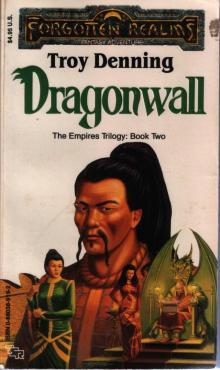 Dragonwall e-2
Dragonwall e-2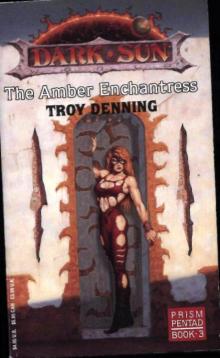 The Amber Enchantress
The Amber Enchantress Crucible
Crucible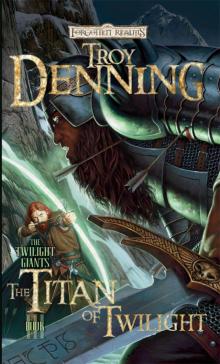 The Titan of Twilight
The Titan of Twilight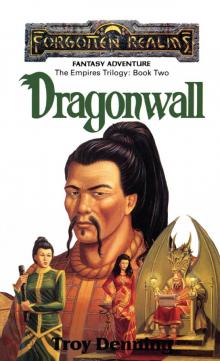 Dragonwall
Dragonwall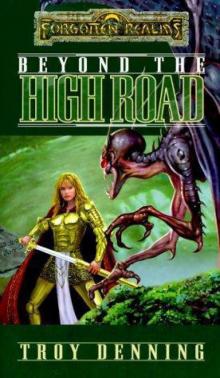 Beyond the High Road c-2
Beyond the High Road c-2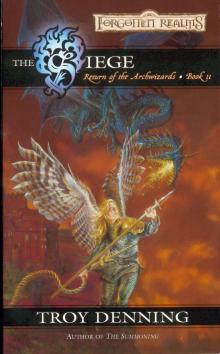 The Siege rota-2
The Siege rota-2 Silent Storm: A Master Chief Story
Silent Storm: A Master Chief Story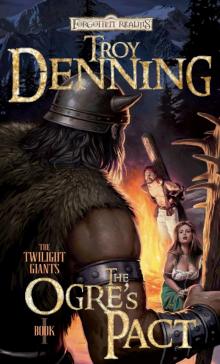 The Ogre's Pact
The Ogre's Pact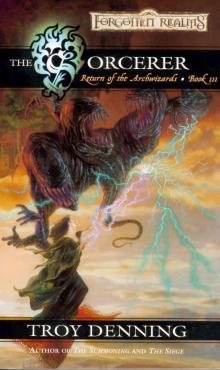 The Sorcerer rota-3
The Sorcerer rota-3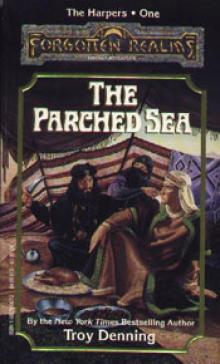 The Parched sea h-1
The Parched sea h-1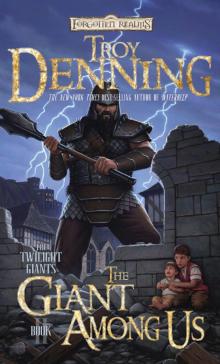 The Giant Among Us
The Giant Among Us Recovery
Recovery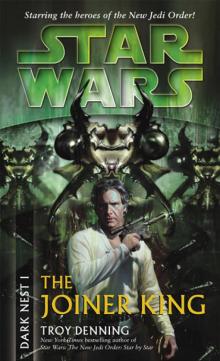 Star Wars: Dark Nest 1: The Joiner King
Star Wars: Dark Nest 1: The Joiner King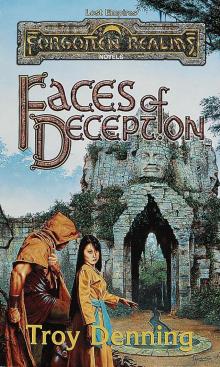 Faces of Deception le-2
Faces of Deception le-2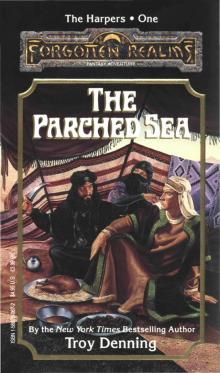 The Parched Sea
The Parched Sea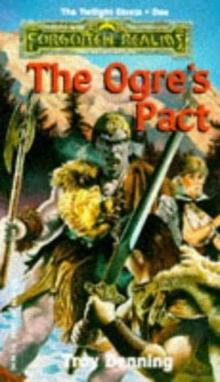 The Ogre's Pact зк-1
The Ogre's Pact зк-1 Apocalypse
Apocalypse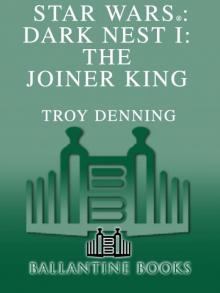 Star Wars®: Dark Nest I: The Joiner King
Star Wars®: Dark Nest I: The Joiner King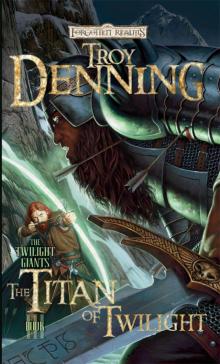 The Titan of Twilight ttg-3
The Titan of Twilight ttg-3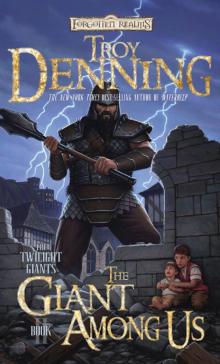 The Giant Among Us ttg-2
The Giant Among Us ttg-2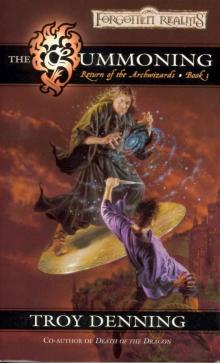 The Summoning rota-1
The Summoning rota-1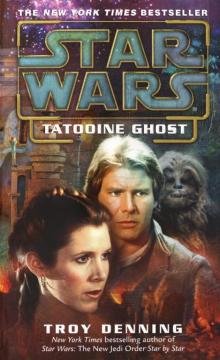 Tatooine Ghost
Tatooine Ghost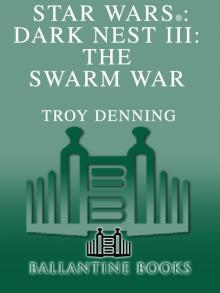 Star Wars®: Dark Nest III: The Swarm War
Star Wars®: Dark Nest III: The Swarm War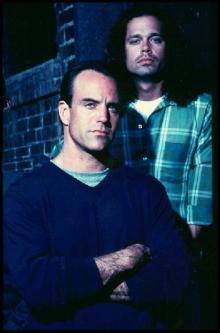 Retribution
Retribution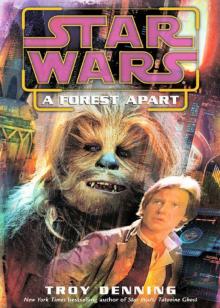 A Forest Apart: Star Wars (Short Story)
A Forest Apart: Star Wars (Short Story)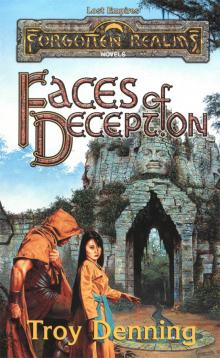 Faces of Deception
Faces of Deception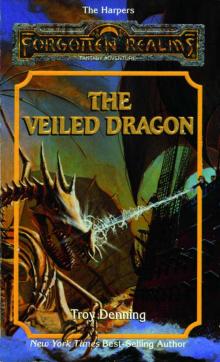 The Veiled Dragon h-12
The Veiled Dragon h-12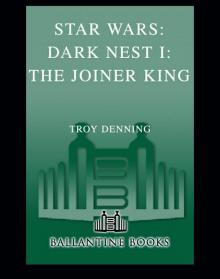 Star Wars 390 - The Dark Nest Trilogy I - The Joiner King
Star Wars 390 - The Dark Nest Trilogy I - The Joiner King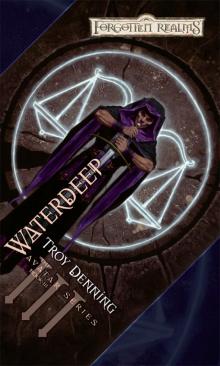 Waterdeep
Waterdeep STAR WARS: NEW JEDI ORDER: RECOVERY
STAR WARS: NEW JEDI ORDER: RECOVERY